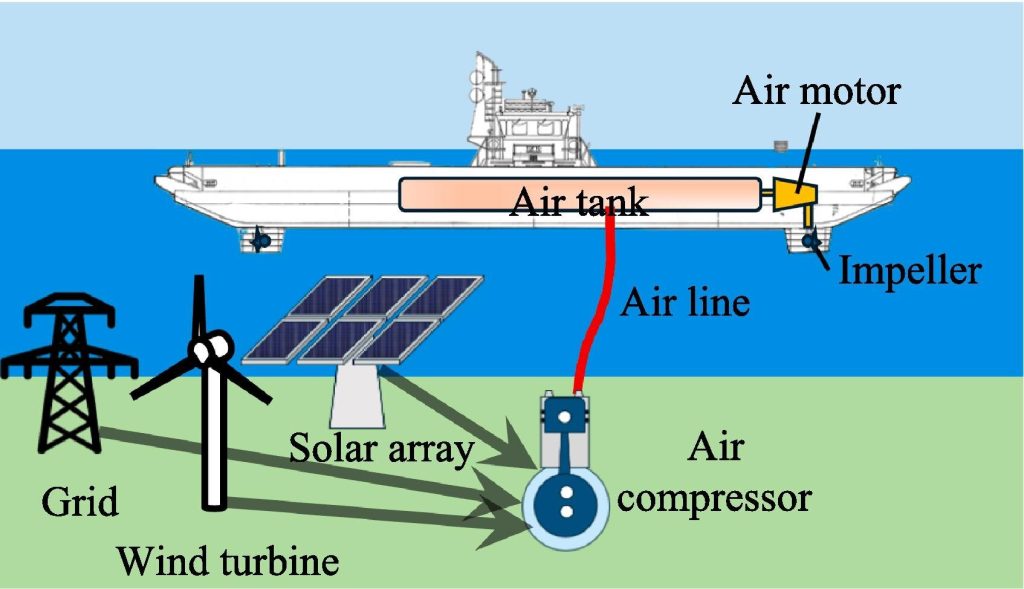A group of scientists has developed a new method that could potentially replace diesel engines on ferry boats with pneumatic propellers. These propellers, powered by air motors generating 250 kW each, have been successful in operating a ferry within Finland’s maritime transport system.
The study, published in the journal Energy Conversion and Management, evaluates the feasibility of using pneumatic propulsion as a sustainable and energy-efficient alternative to conventional marine engines, particularly for short-distance ferry operations. Diesel engines, while reliable, are noisy, polluting, and require large amounts of fuel to operate.
Lead author Abdul Hai Alami explains that pneumatic propulsion offers a cleaner and more effective option, allowing compressed air to be stored either within the boat’s structure or in auxiliary tanks, enhancing buoyancy.
The research findings, based on experimental results and realistic calculations, suggest that pneumatic propulsion systems have lower operational costs, attractive payback periods, and significantly smaller environmental impacts compared to diesel engines. The authors’ approach involves retrofitting existing ferry boats with pneumatic systems, showcasing the potential for a sustainable future in maritime transport.
Co-author Kaj Jansson, a Finnish ferry maker, oversaw the successful replacement of diesel engines with air-driven motors on a ferry and highlighted the predictability and efficiency of pneumatic propulsion on fixed maritime routes. The authors emphasize that pneumatic systems offer scalability, adaptability, and competitive advantages in terms of fuel costs and maintenance requirements.
Overall, the researchers are optimistic that their pneumatic propeller method will be embraced by the ferry industry, leading to a more sustainable and environmentally conscious approach to marine transportation.


